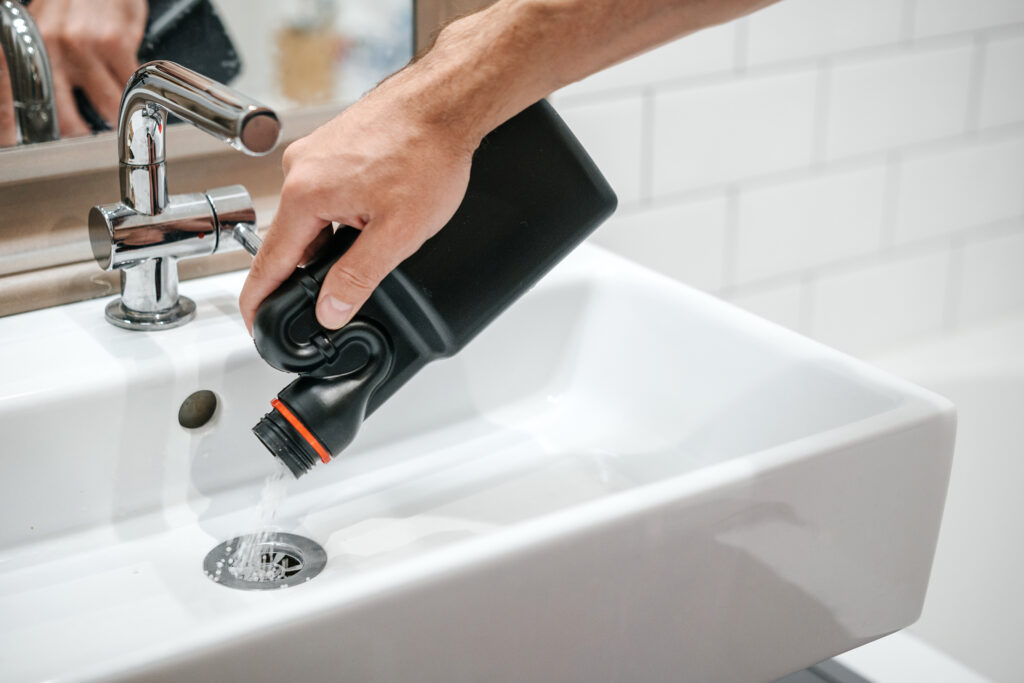6 Tips to Maintain a Healthy Drainage System
Keeping your drains clean and maintaining a healthy drainage system is an essential part of looking after your home. Whether it’s saving money by avoiding blockages or regularly cleaning your drains, this guide should offer some helpful tips to help maintain a healthy drainage system in your home.
1. Be Mindful of What Goes Down the Drain
The first and possibly the most important step to keeping a healthy drainage system is to only flush away appropriate things. When it comes to kitchens, you should never dispose of any fat, oil, or grease down your drain. These can congeal in the drains and pipes and block them. You should also try to avoid putting waste food down the drain and ensure it goes in the bin. For bathrooms, you should avoid flushing away wet wipes or sanitary towels. These don’t dissolve and can cause blockages, or bigger issues further down the sewer system such as fatbergs, which are difficult and costly to remove from sewers.
2. Clean Your Drains Regularly
Just as you put effort into keeping the rest of your house clean, you should maintain your drains to keep the drains healthy. Hair can commonly cause issues with drains, especially in bathtubs and showers. There are many different ways to clean drains regularly. For hair buildups, there are products that dissolve hair and other solids. You can also use a mixture of vinegar and baking soda to clean out residue, or pour boiling water down. For bigger jobs, look for a biological or enzymatic drain cleaner. These are relatively safe and environmentally friendly, and less likely to cause any damage or corrosion compared to chemical cleaners.
3. Use a Drain Guard
Drain guards are a great way to keep unwanted objects from going down your drain. A drain guard is a small plastic or metal grate-like disk that sits on top of a plughole to collect debris such as food. You can pull the drain guard out and easily empty it into the bin. Drain guards also work well for showers, where they can collect loose hair or other debris.
4. Be Observant
Issues with your drain are often not completely apparent until it is too late and professional help is needed. You can visually inspect or smell drains to easily identify problems, and look for signs of leakage in pipes. You might also notice issues such as wet patches elsewhere on your property that shouldn’t be there. As well as your indoor drainage systems, you should also pay attention to outdoor drains. These can get blocked by garden debris such as leaves and twigs, and blockages might cause flooding. You can also install a grate to help keep outdoor drains clear.
5. DIY Drain Unblocking
If your drain does get blocked there are many potential options to fix it to keep your drains clear and maintain a healthy drainage system. One of the first options that springs to mind are a plunger, commonly used for toilets. These work very well for simple unblocking tasks. You can also buy barbed tools for removing blockages such as hair that have accumulated close to the drain opening. As mentioned previously, biological or enzymatic drain cleaners work very effectively to deal with blockages. They can often be left overnight for best effect, or used to treat multiple times. If you are confident, you could also buy an inexpensive cable auger (or plumber’s snake).
Call a Professional
If all else fails, Maintain Drains can help you restore your drains. We can deal with a very wide variety of issues and have access to an arsenal of tools to deal with any situation. We offer a free quotation with no obligations and can give advice on the most cost-effective and long-lasting solution to whatever issue you might have.
Simply call us on 01202 300040, Whatsapp us on 07539 426226 or use our enquiry form to get in contact.
FAQs
Q: What should I avoid flushing down the drain to maintain a healthy drainage system?
A: Avoid flushing fat, oil, grease, wet wipes, sanitary towels, and waste food down the drain, as these can cause blockages and other issues.
Q: How can I clean my drains regularly?
A: You can clean your drains regularly by using products that dissolve hair and solids, a mixture of vinegar and baking soda, or boiling water. Consider using biological or enzymatic drain cleaners for bigger jobs.
Q: What is a drain guard, and how does it help?
A: A drain guard is a small plastic or metal disk placed on top of a plughole to collect debris like food or hair, preventing them from going down the drain and causing blockages.
Q: How can I be observant about my drains?
A: Visually inspect and smell your drains regularly to identify any issues. Look for signs of leakage in pipes or wet patches elsewhere on your property. Pay attention to outdoor drains, which can get blocked by garden debris.
Q: What are some DIY methods for drain unblocking?
A: You can use a plunger for simple blockages, barbed tools to remove accumulated hair, or opt for biological or enzymatic drain cleaners. An inexpensive cable auger (plumber’s snake) can also be used if you’re confident in handling it.
